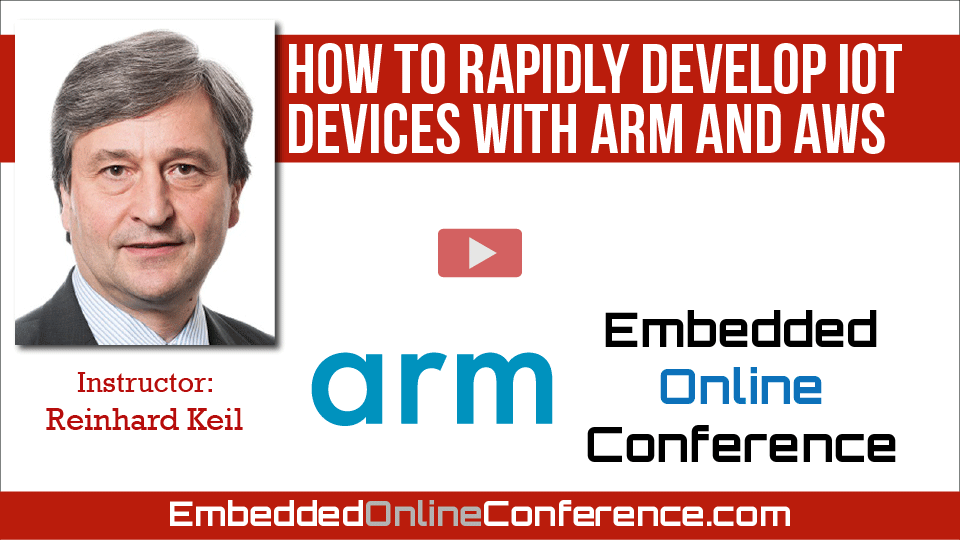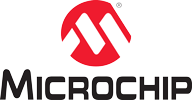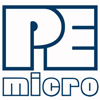Home > On-Demand Archives > Talks >
How to Rapidly Develop IoT devices with Arm and AWS
Reinhard Keil - Arm - Watch Now - EOC 2020 - Duration: 27:40

Arm Cortex-M processors have been shipped in more than 45 billion chips for a vast range of applications, from industrial sensors to wearables. This growth has exploded more so in the last few years due to the significant rise in connected products for diverse markets. AWS IoT provides broad and deep functionality, spanning the edge to the cloud, so customers can build IoT solutions for virtually any use case across a wide range of devices. With designers of IoT applications under extraordinary pressure to build innovative solutions quickly, affordably, and satisfy many design requirements, how can the IoT continue to scale across a growing number of use cases? The talk provides a tour of a simple path to developing secure Cortex-M based IoT devices with Arm and AWS, and how together, the collaboration provides choice and scalability for IoT developers.
DO you offer validation pack software for CMSIS-DSP pack too?
The validation for CMSIS-DSP is part of the CMSIS Software Pack itself. It is located here: https://github.com/ARM-software/CMSIS_5/tree/develop/CMSIS/DSP/DSP_Lib_TestSuite
Hi sir! Thank you very much for the easy to follow presentation!
Have you ever experienced problems with CMSIS? What additional features or improvements can we look forward to in future releases?
You can view and raise issues on https://github.com/arm-software/cmsis_5 - see issues.
This page contains also the Partner Meeting Slides (PDF file) that includes a roadmap.
If a vendor wants to add their board to be a reference, what pieces would that vendor need to write/provide?
It is a Board support pack that is needed.
https://arm-software.github.io/CMSIS_5/Pack/html/createPackBoard.html
There are some examples for such BSPs here:
https://github.com/mdk-packs
Herzliche Grüße und viel Erfolg!!
Peter
Danke Peter - schoen dich hier zu treffen.
It appears that CMSIS-Pack defines interface requirements for the processor vendor (e.g. ST) and their "Device Configuration" block for things like as it pertains to things like the CMSIS-Driver and CMSIS-VIO to seamlessly connect to the cloud layer. What about for my application? Presently, STM32CubMX has it's HAL API, but that's proprietary and if I code directly to it, I'm stuck with ST. Are there plans for a "CMSIS" for peripherals not used by the cloud?
We currently support this list of CMSIS-Driver interfaces: https://arm-software.github.io/CMSIS_5/Driver/html/modules.html
Other peripherals are typically very specify and interfaces frequently time critical. A generic driver would hide bespoke functionality. Also we could easily end with the complexity of AutoSAR (which we want to avoid).
Great presentation, thank you! In the slides, you mention 1-Trillion devices by 2035. How do you see the cost vs security affecting this? It would be great if we could say 1-Trillion secure (by design) IoT devices by 2035 but I fear that many hardware implementation do not support on-chip security or the cost of the chip is prohibitive for IoT devices. Do you know of efforts to help drive security into more hardware implementations (besides those in the presentation) that will help to lower the per unit device costs?
TrustZone is now available in low-cost microcontrollers as it is part of Cortex-M23, M33, M55. As it is part of the core functionality, the additional unit costs going forward are very low.
I will look into TrustZone further! The CMSIS and MDK device packs for IoT/Cloud will certainly help reduce software development time, improve security, and reduce product time-to-market.
Chip/Device costs have been a big obstacle/source of issues for IoT ecosystems in the past so it is exciting to see a lot of effort in this area. Thanks again!
No sorry, we have not made such a case study yet. However, I will ask our UX team to get information on that.
Do you have any white papers or case studies that can quantify how much faster you can develop using CMSIS?
























Thank you very much for the nice presentation!